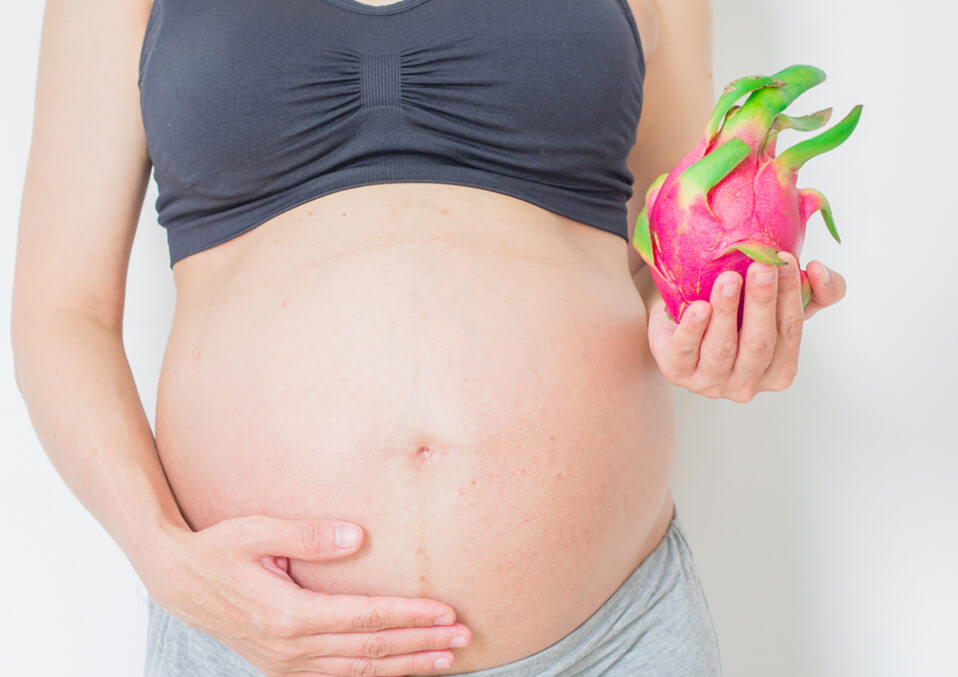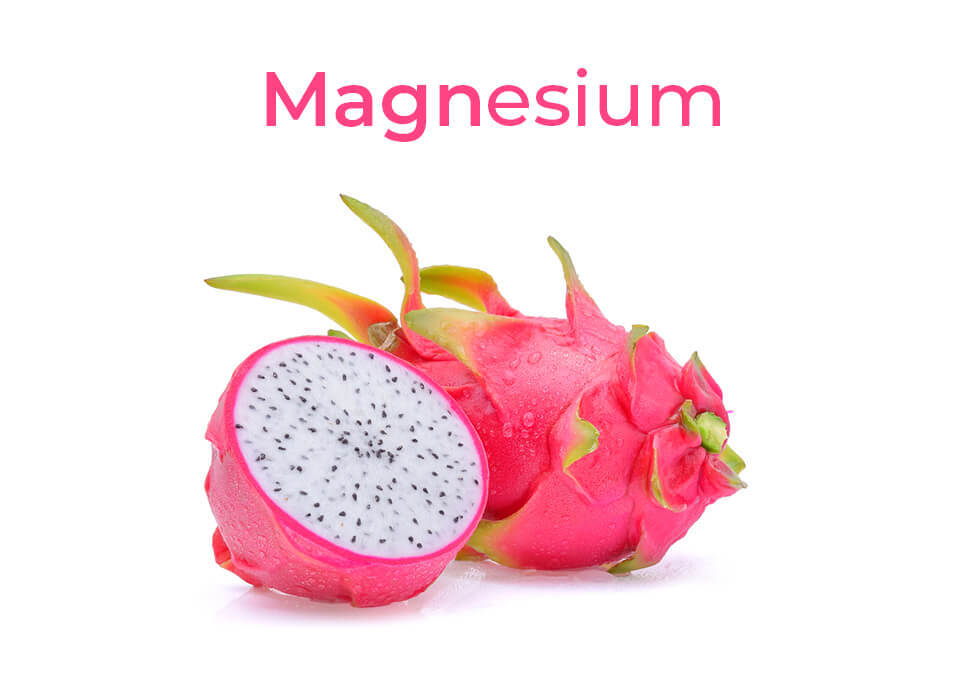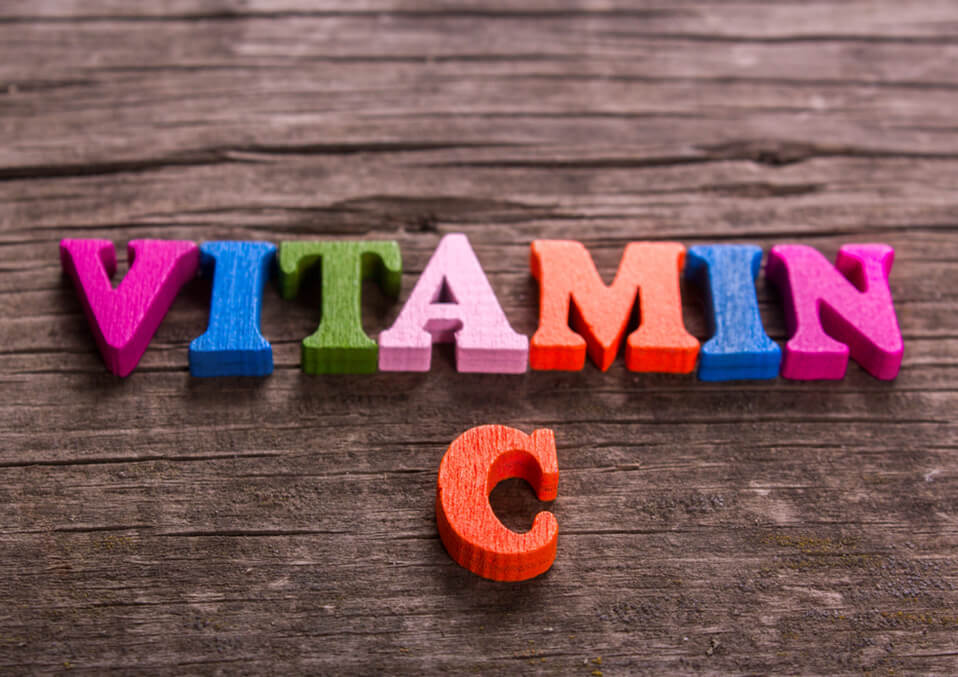This pinkish, scaly fruit that we call a dragon fruit is actually a tropical fruit, and it is oftentimes called pitaya. Originally, this fruit is from Southern Mexico, El Salvador, Costa Rica, Colombia, Ecuador, Panama, and Brazil—so basically, places that do not get freezing cold, and not too hot. This interesting-looking fruit actually has a couple of different species. The most common one is the pink-skinned kind (Hylocereus Undatus) that has white flesh, and the other one having red flesh (Hylocereus Polyrhizus). Another is called the yellow dragon fruit (Selenicerues Megalanthus) because it has a yellow exterior but also has white flesh.
This exotic fruit has a sweet taste to it, some people sometimes say that it tastes like a cross between pear and kiwi. And the tiny black seeds it has? Don’t worry, they are totally edible
It really sounds like a real threat, but here is the million-dollar question: is eating dragon fruit during pregnancy safe? Let’s find out, shall we?
Pros of eating dragon fruit during pregnancy

Expecting mothers should be very careful with what they eat, especially because the child in their wombs depend on them for nutrition all throughout the 9 months of pregnancy. It is a good practice to check with your doctor, avoiding alcohol and smoking, having an ample amount of rest, and other activities are, without a doubt, going to be beneficial, but having a healthy diet is one of the most important things to keep in mind during pregnancy.
It is a good source of iron
The dragon fruit, being a good source of iron (containing 4% of the recommended dietary intake), helps the body produce hemoglobin. This is what carries oxygen in RBC’s (red blood cells) and transport it from the lungs to the other parts of a person’s body. The more oxygen transported, the less tired we feel, if our bodies lack oxygen, we get fatigued really quickly. You would at least need 27 milligrams of iron every day during pregnancy. A lack of healthy RBC’s might result in your baby being born earlier than the due date, having LBW or low-birth-weight, or spine or brain defects.
It is rich in magnesium, containing 10% of the recommended dietary intake

Magnesium is another nutrient we can get from dragon fruit. Some studies suggest that magnesium helps lessen the probability of having pregnancy complications. Elaheh Zairean & Amal Tarjan conducted a study suggesting that magnesium intake during pregnancy helps reduce the risk of preeclampsia which is a condition during pregnancy which causes high blood pressure to the expecting mother, abdominal pain, dizziness and vomiting, shortness of breath, etc. The RDI (recommended dietary intake) of magnesium for 19-year old to 30-year old pregnant women would be 350 milligrams a day, 360 milligrams is recommended for pregnant women with ages 31 to 50, and lastly, 400 milligrams a day is for those who are 14 to 18 years old.
It contains a good amount of fiber
On the other hand, fiber is known to prevent constipation, this is still true for pregnant women. As a matter of fact, since dragon fruit contains 3 grams of fiber which is good news for expecting moms! This nutrient is essential because it helps control weight-gain as foods rich in fiber makes you feel fuller, but without the extra calories. 25 to 35 grams of fiber is the daily recommended intake, this fruit has 3 grams of it already.
We can also get Vitamin C from it

Ascorbic acid, most commonly known as Vitamin C, is of course known to strengthen our body’s immune system that helps fight viruses, but did you know that this vitamin plays a vital role in the fetus’ development? Apparently, a lack of vitamin C could cause serious consequences to the fetus’ brain development. And once the damage has been done, taking vitamin C supplements won’t reverse the effect, unfortunately. So how much is the recommended amount? For women ages 19 and above, you will need about 85 milligrams a day, and for 14 to 18-year olds, 80 milligrams is suggested. The dragon fruit gives 3% of the recommended dietary intake.
Dragon fruit also contains several antioxidants
Our bodies have free radicals that, if they reach a certain level, can cause different illnesses. This is where antioxidants save the day. Antioxidants help fight the free radicals our bodies have. And the dragon fruit contains betalains, hydroxycinnamates, and flavonoids. Betalains, according to research, help prevent inflammation. Hydroxycinnamates, on the other hand, helps fight cancer-causing activities that might happen within a person’s body. And lastly, flavonoids. These antioxidants lessen the risk of having heart diseases, and it constitutes positively to brain health.
It is low-calorie, contains less sugar, and good fats
A serving of 100 grams of this fruit contains only 60 calories, has less sugar, and contains good fats–the type you do not need to worry about. What a relief, right?
To summarize everything…
I think with all the benefits it’s safe to say that eating dragon fruit during pregnancy is safe, if not recommended. I mean, who wouldn’t want to get a taste of this amazing fruit and get tons of good stuff that comes from it? Finally, something yummy, and healthy for both moms and their babies! Of course, you should also be careful, and make sure that you are not allergic, although allergic reactions to dragon fruit are pretty rare, you know, it’s better to be safe especially with a baby in the womb. But if you’re sure you’re not allergic to this, go grab one, slice it in half and eat it as it is, make a smoothie, or make ice cream, and, of course, enjoy!
Here are some other articles you might also want to read about…
- The Best Magnesium Supplement
- How Dangerous is Preeclampsia in Pregnancy?
- Pregnancy Tips: What Every Pregnant Woman Should Know


